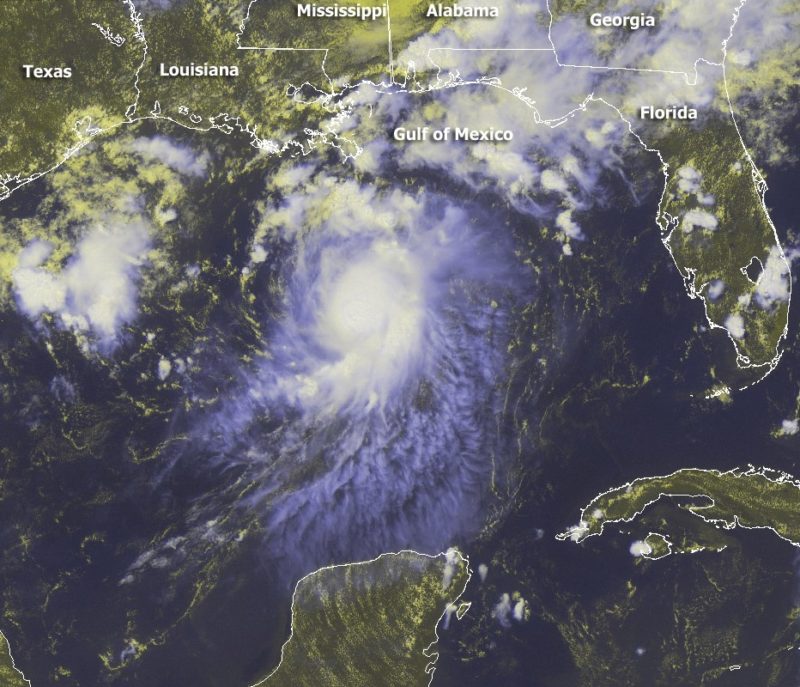Here’s the weather report for the Gulf of Mexico for the foreseeable future – steamy.
Record temperatures this winter have heated the Gulf to highs that are often 10 degrees above historical averages. This could mean a particularly violent weather season this spring for a broad swath of the country, including parts of Texas.
Eric Berger, a meteorologist from Houston who runs the web site Space City Weather, says dramatic rains and storms that caused devastating floods in Houston may only be a taste of what’s to come.
“[A] warmer Gulf means that there’s probably going to be more moisture transported inland into the coastal areas of Texas, Louisiana, and the southeastern United States,” Berger says. “In addition, the warmth will help fuel the strong thunderstorm systems that produce tornadoes.”
The effects of rising ocean temperatures in the Gulf will be felt across the country.
“The gulf has an immense influence on weather in the central and southern United States,” Berger says. “There’s basically two main factors that drive weather there and one is the Rocky Mountains.”
In this region, Berger says turbulence from the Rocky Mountains and warm, moist air flowing in from the gulf creates the conditions necessary for tornadoes in this region – conditions that will only be primed by hotter temperatures.
“The fact that the gulf is a little warmer is going to help fuel that storm season,” Berger says.
A warm winter this past season didn’t provide the cool fronts that normally regulate ocean-driven storm systems.
But Berger says the root of this problem goes even further – it’s simply one of the consequences of a warming planet as a whole.
“If the overall planet is warmer, you would expect the oceans to be warming,” Berger says. “The Gulf of Mexico is obviously an extension of the Atlantic basin and so there is some underlying signal here of climate change which is leading to warmer water temperatures.”
Written by Morgan O’Hanlon.
















